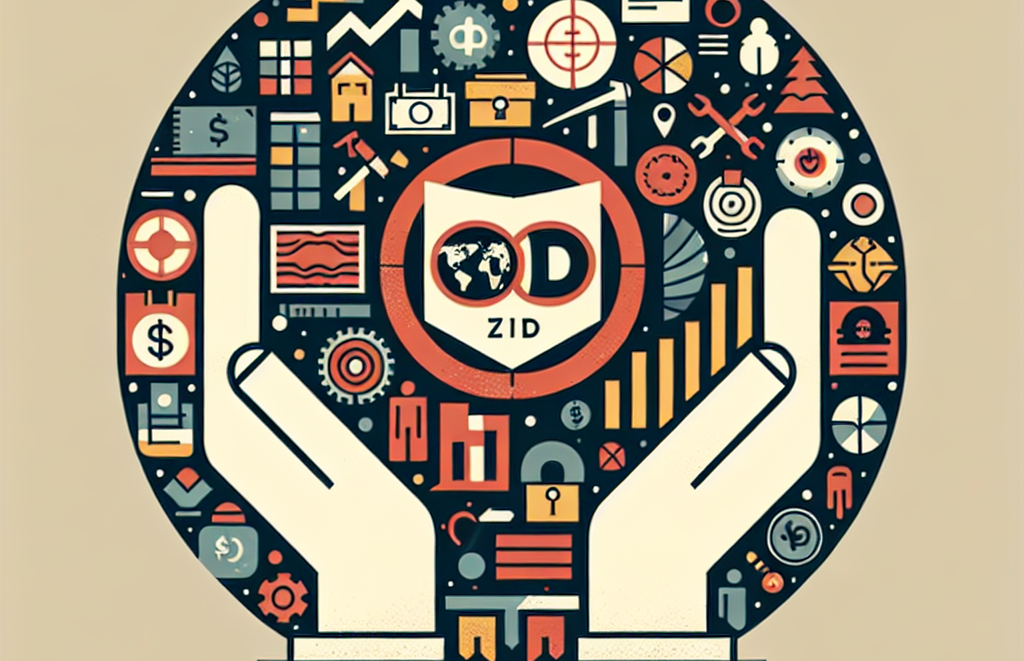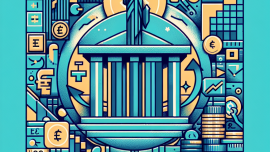
Can the IMF Reinvent Itself for the Next Global Debt Crisis?
The Dollar Dilemma: Why the Greenback’s Global Dominance Is Both a Blessing and a Burden
Ah, the almighty dollar—a symbol of economic might, Wall Street wizardry, and more than a few international headaches. As much as most of us may criticize the dominance of the U.S. dollar in the world’s financial systems, it remains the lingua franca of global trade and finance. But is that a good thing? And for whom?
I’m Dr. Alistair P. Whitmore, a weary-yet-wise macroeconomist with a penchant for arcane acronyms, long-term analysis, and well-aged scotch. Today, we dive deep into what I affectionately call “The Dollar Dilemma”: the curious case of how the U.S. dollar shapes—and shakes—our interconnected global economy.
What Does It Mean to Be the World’s Reserve Currency?
Let’s begin with the basics. The U.S. dollar serves as the world’s primary reserve currency, held by central banks around the globe. According to the International Monetary Fund (IMF), approximately 58% of global foreign exchange reserves are denominated in dollars. The euro, for comparison, holds a distant second place at around 20%.
So why do nations hoard dollars like dragons hoarding gold? Because the dollar offers liquidity, stability, and trust. U.S. Treasury bonds are seen as safe havens. The American system of laws, markets, and political institutions—imperfect as they may be—is viewed by investors as more predictable than most alternatives.
The Network Advantage
There’s also what we call in economic circles the “network effect.” If everyone else uses dollars for trade, investments, and pricing—well, you’re at a disadvantage if you don’t. Imagine trying to sell oil or airline tickets in Bolivian pesos. Good luck with that.
Advantages for the United States
The dollar’s dominance confers a number of benefits upon the U.S., often summarized (with a hint of envy) by economists as “exorbitant privilege.”
Cheaper Borrowing Costs
Thanks to insatiable global demand for dollar-denominated assets, the U.S. government can borrow money at lower interest rates than it otherwise could. This means Washington can run persistent deficits—no comment on whether that’s a good idea—without facing rapid debt spirals.
Trade Leverage and Sanctions Power
Dollar dominance gives the U.S. enormous geopolitical clout. Many nations engaging in global trade are dependent on U.S. financial infrastructure. This dependence gives Washington a powerful tool—namely, economic sanctions, often enforced by cutting off dollar transactions.
Monetary Policy Autonomy
The Federal Reserve doesn’t have to worry about currency pegs or imported inflation to the same extent as other central banks. The world’s trust in the dollar gives the United States room to maneuver, tightening or loosening policy with an eye primarily on domestic conditions.
The Costs and Burdens of Dollar Dominance
Of course, every silver coin has its tarnish. While dollar dominance brings sizable benefits, it also imposes real economic and political costs—a fact often overlooked in triumphant capital hill speeches or bullish CNBC panels.
The Strong Dollar, Weak Exports Conundrum
Global demand for dollars tends to put upward pressure on its value. While this benefits U.S. consumers (hello, cheap imported wine and electronics), it hinders American exporters. A stronger dollar makes U.S. goods and services more expensive abroad, widening the trade deficit and hurting domestic manufacturing.
The Global Spillover Effect
One nation’s policy is another’s panic. Because the dollar is the fulcrum of international finance, any shift in Federal Reserve policy—especially interest rate hikes—reverberates through emerging markets like a tremor before a quake. It becomes more expensive for those countries to service dollar-denominated debt, often leading to capital flight and currency crises.
Global Backlash and De-Dollarization
Increasingly, countries are trying to mitigate their reliance on the dollar. China, Russia, and several oil-exporting nations have been forming alternative payment systems and bilateral trade agreements in other currencies. While true de-dollarization remains improbable in the near future, incremental shifts could erode the dollar’s hegemony over the long run.
The International Trilemma: An Impossible Choice
This situation intersects neatly with what we economists call the “Trilemma” or the Impossible Trinity. A country cannot simultaneously maintain:
- Fixed foreign exchange rates
- Independent monetary policy
- Free capital movement
Nations must pick two. The U.S., thanks to the dollar’s dominance, plays this game by different rules—with far more room to maneuver. But as emerging powers grow restless, the current equilibrium may not be sustainable forever.
What Comes Next? Scenarios for the Future
In the spirit of intellectual honesty—and to win a few pub trivia games—let’s explore a few possible scenarios for the dollar’s future:
1. Status Quo Survives (Most Likely)
Despite growing discontent, no other currency offers the combination of liquidity, trust, and institutional depth that the dollar does. Even with its internal problems, the U.S. remains the tallest hobbit in the room.
2. A Multipolar Reserve System
Some analysts foresee a shift toward a basket of dominant currencies—perhaps the Euro, Yuan, and Dollar sharing reserve status. A more diversified monetary world might be less volatile, but the transition itself could be rocky.
3. Digital Disruption
The rise of central bank digital currencies (CBDCs) could alter monetary dynamics. If China’s digital yuan gains traction, or if the U.S. launches a fully functional Fed-backed digital dollar, the global monetary order may evolve in ways we’ve just begun to imagine.
Conclusion: A Blessing, a Burden, and a Balancing Act
To paraphrase Churchill: the U.S. dollar is the worst global reserve currency—except for all the others that have been tried. Its dominance grants unmatched power and formidable responsibility. While other nations plot escape routes or alternatives, for now, the dollar remains the beating heart of global finance.
The challenge ahead is to manage this privilege with discipline, foresight, and a dash of humility. If not, the blessing may tip toward a burden neither America nor the world is ready to carry.
Until next time, keep your portfolios diversified, your currencies hedged, and always read the footnotes—where the real secrets lie.
To learn more about our global economic insights, visit our About Us page or Contact Us.









Leave a Reply